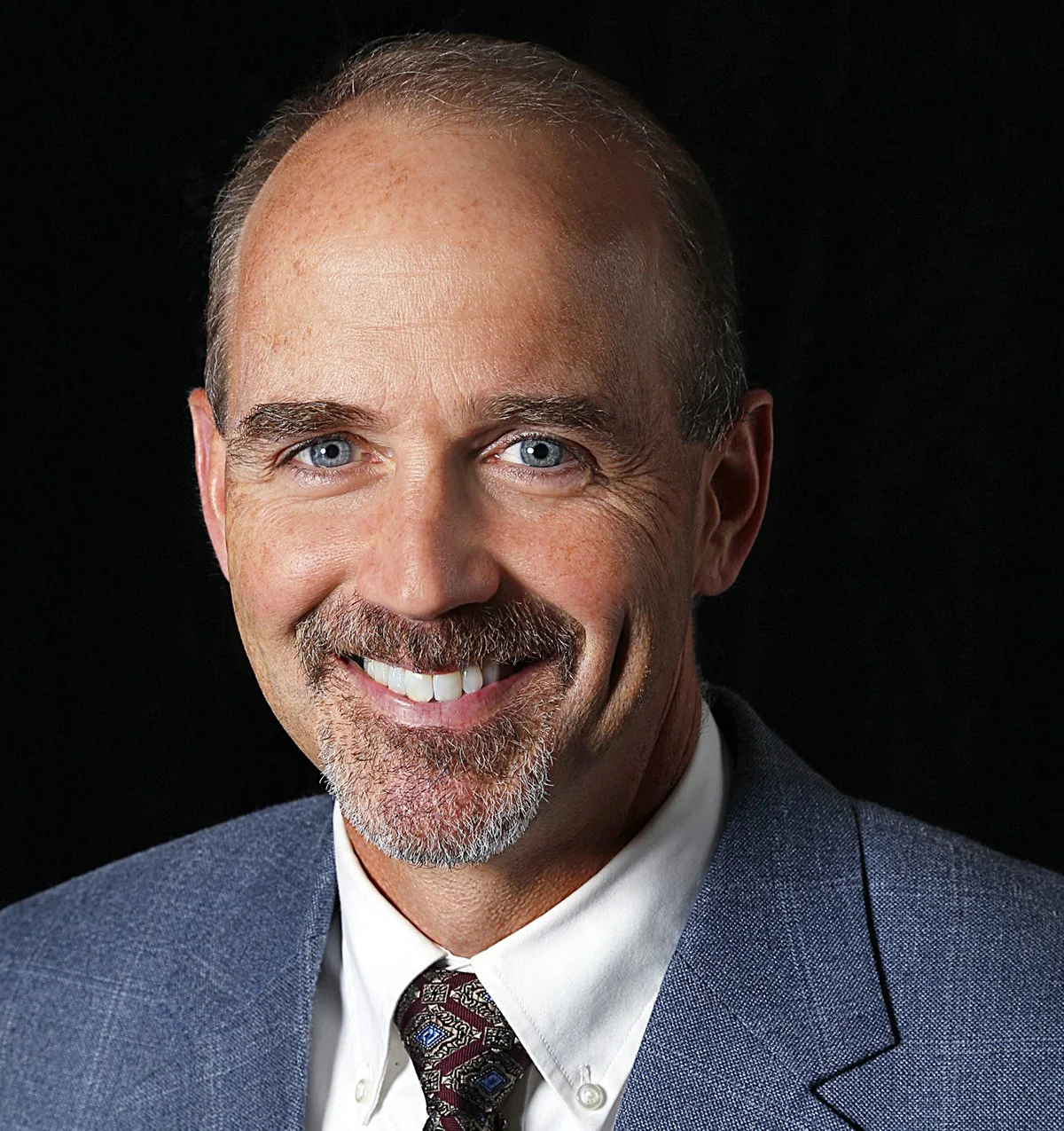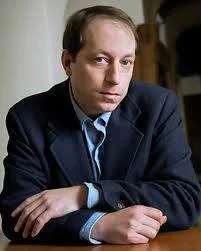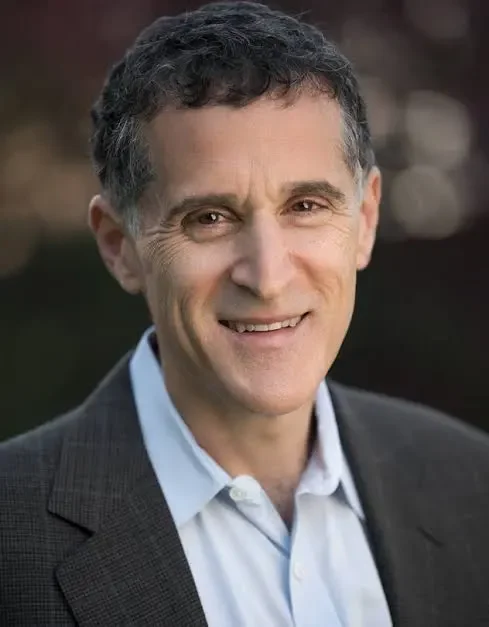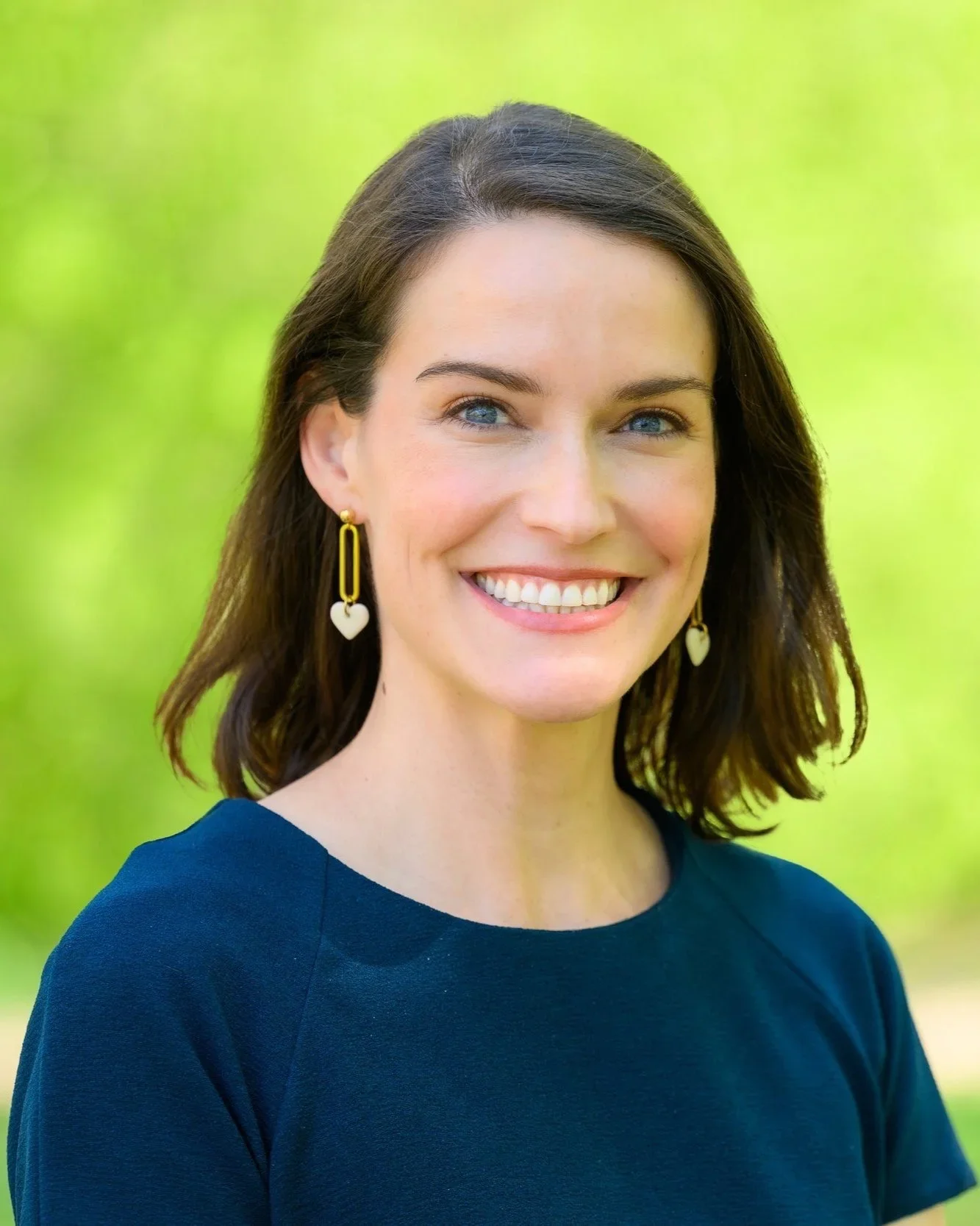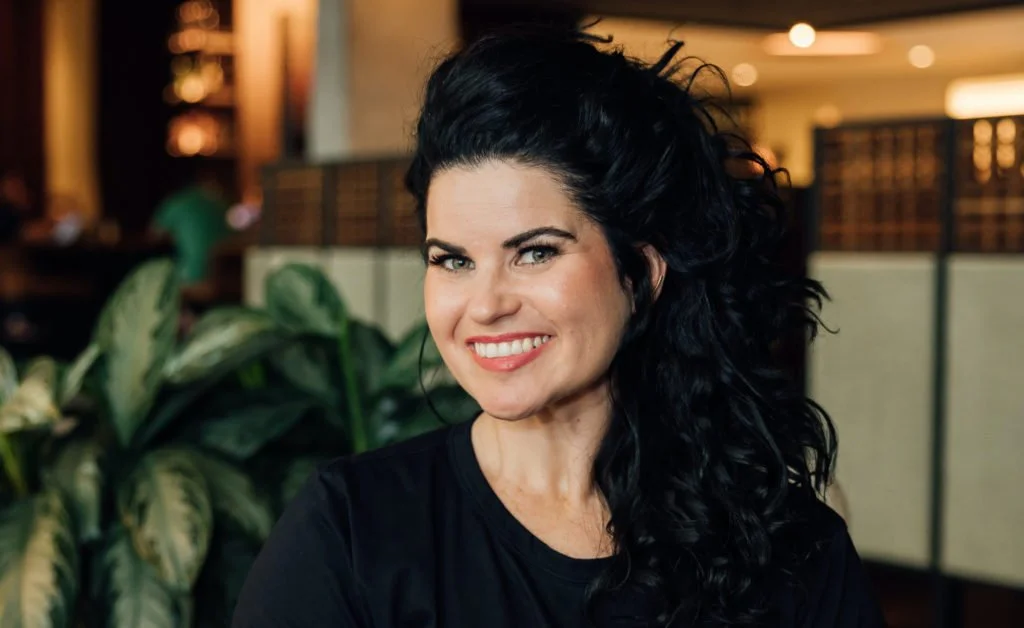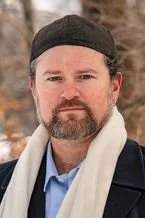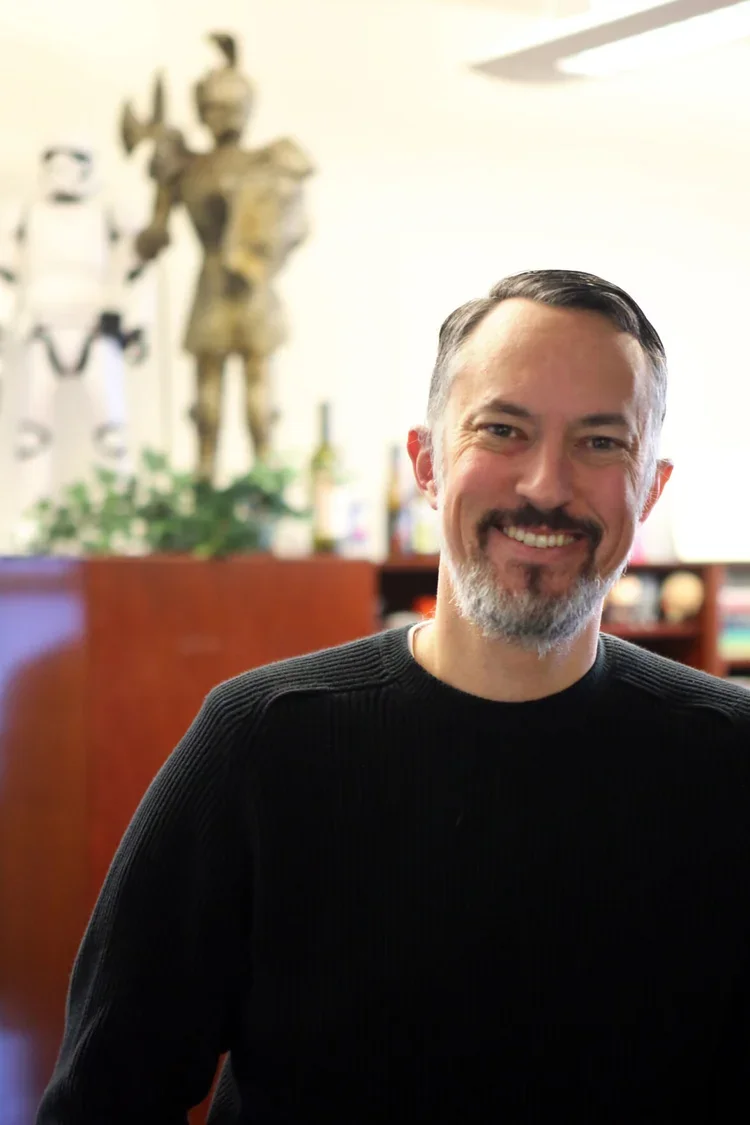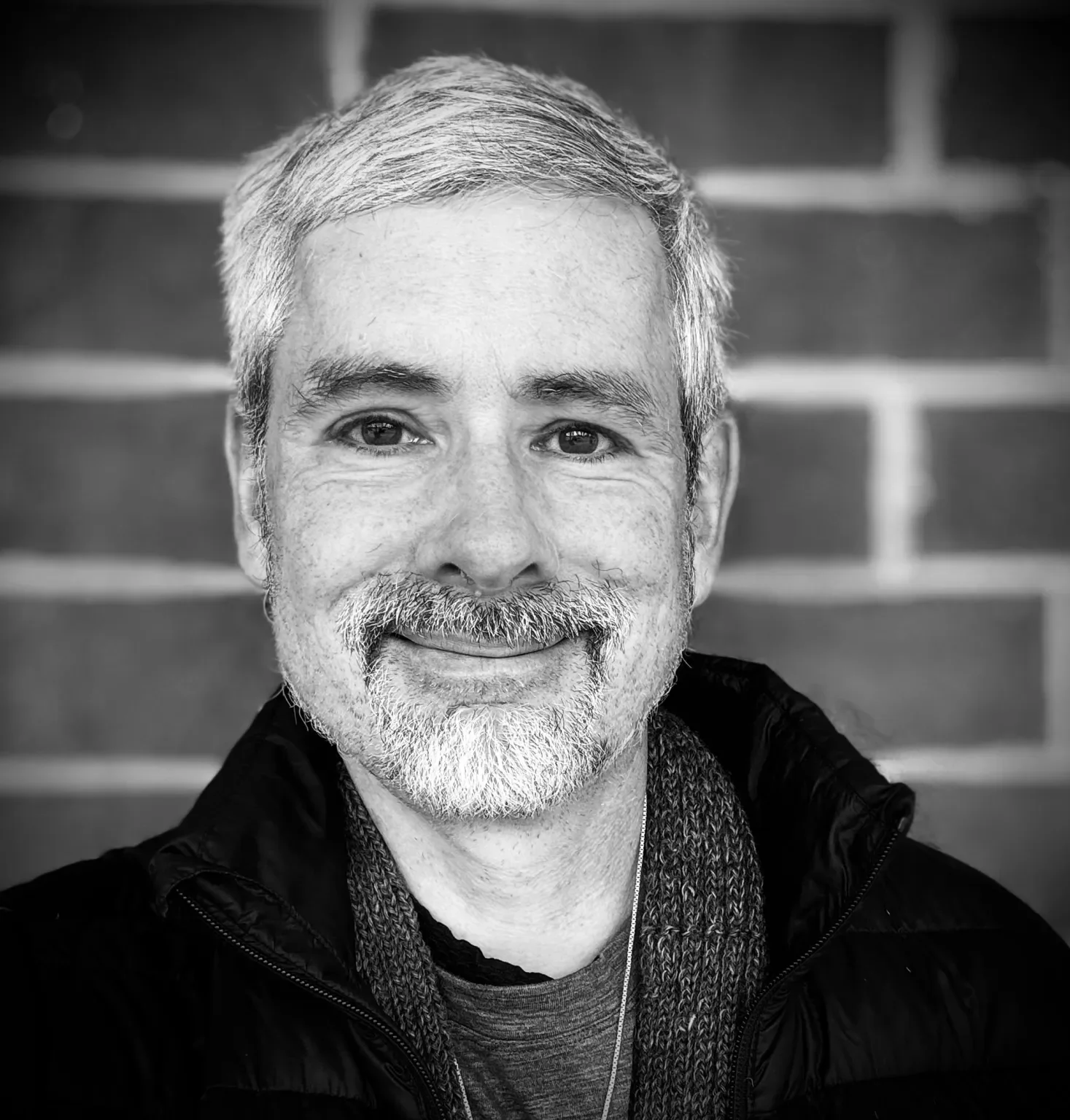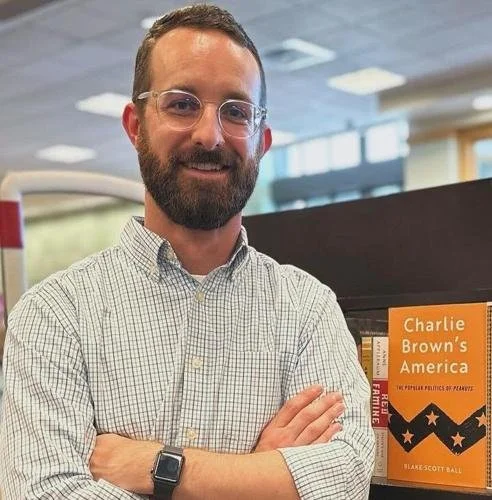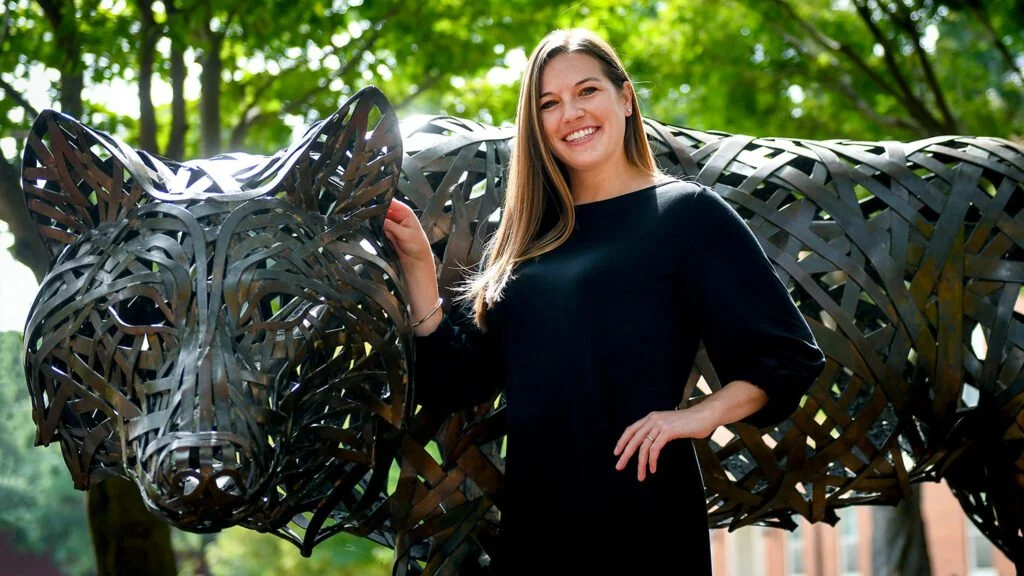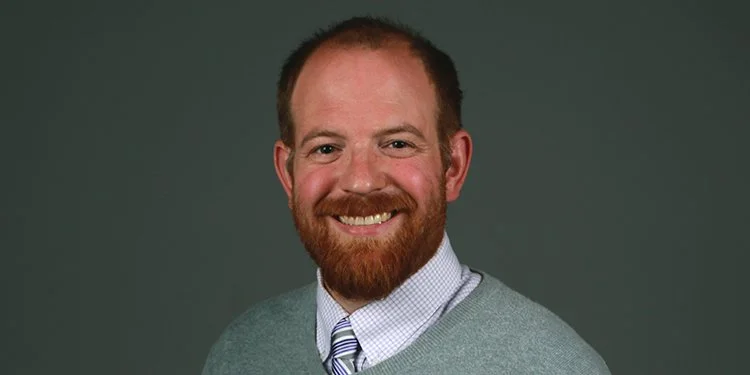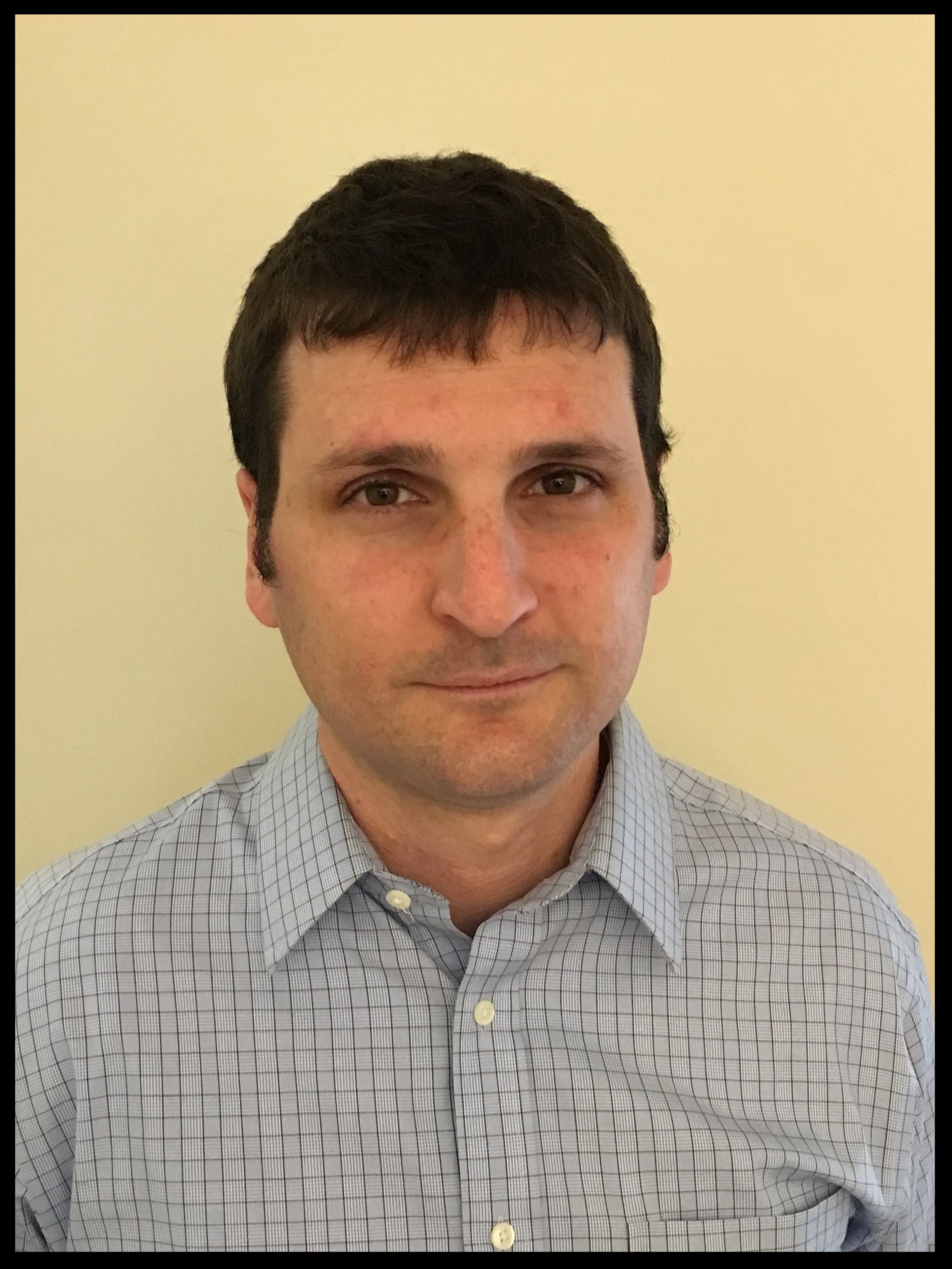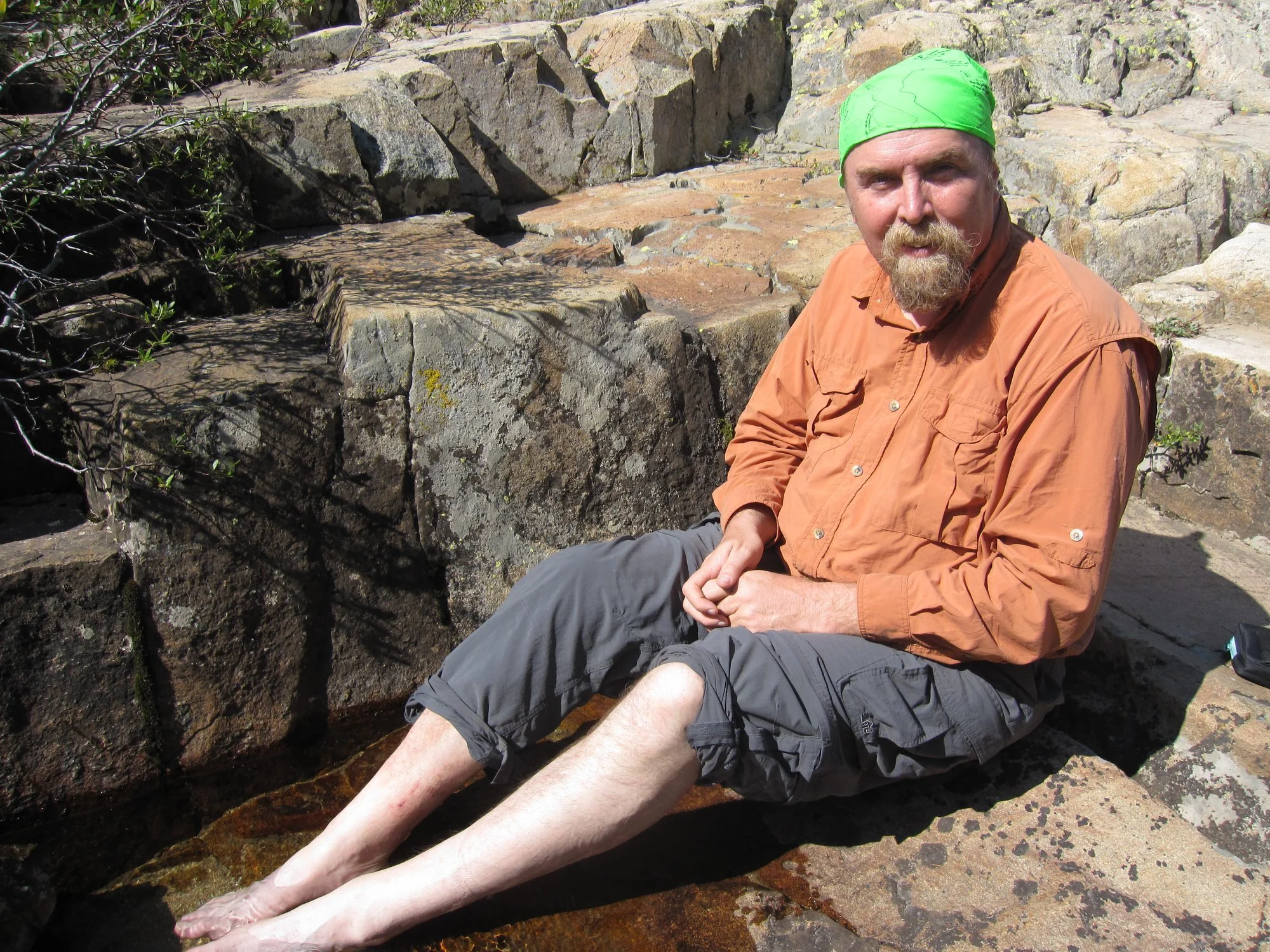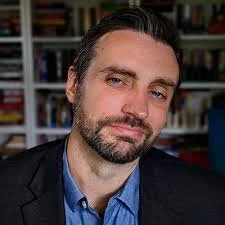Episode 39: Legally Blonde with Dr. Kristalyn Shefveland and Dr. Jennifer McCutchen
A lot of you love Legally Blonde. I mean really love Legally Blonde. So it was probably inevitable that two of my closest friends in the profession, Kristalyn Shefveland and Jennifer McCutchen, requested to do a pod on this film if only to torment me. This movie is so much more than I ever gave it credit for. We get into this film as a historical artifact, perhaps the last film of the 90s, it has so much to say about shattering glass ceilings, East Coast vs West Coast, fashion, performative perceptions, whether or not it's ok to be a fan of pop culture, and yes, why I seem to be drawn to attorneys. This pod is a blast and I hope you dig it.
Dr. Kristalyn Shefveland is Professor of American History and an Assistant Dean of the College of Liberal Arts at the University of Southern Indiana where she is also the creator of the River Cities Oral History Project.
Dr. Jennifer McCutchen specializes in Early American History and Native History, with a focus on the themes of gender, power, exchange, and diplomacy. Her current project is an ethnohistorical study of gunpowder in the late eighteenth-century Creek Confederacy.
Episode 38: Fury with Dr. Waitman Beorn
Every now and then we get the chance to talk to a scholar with a little extra knowledge on a particular subject. In this case, Dr. Waitman Beorn drops in to talk about Brad Pitt's tank film, Fury. Waitman knows the film well, especially since he commanded a tank prior to becoming a historian. Listen in now to hear him talk not only about WWII, but his experiences serving in the Tank Corps and how the lessons learned transcended his time there. It's a fun and fascinating talk.
Dr. Waitman Wade Beorn is an associate professor in History at Northumbria University in Newcastle-upon-Tyne, UK. Dr. Beorn was previously the Director of the Virginia Holocaust Museum in Richmond, VA and the inaugural Blumkin Professor of Holocaust and Genocide Studies at the University of Nebraska-Omaha. His first book, Marching Into Darkness: The Wehrmacht and the Holocaust in Belarus (Harvard University Press) Dr. Beorn is also the author of The Holocaust in Eastern Europe: At the Epicenter of the Final Solution (Bloomsbury Press, 2018) and has recently finished a book on the Janowska concentration camp outside of Lviv, Ukraine. That book Between the Wires: The Janowska Camp and the Holocaust in Lviv was released in August 2024 from Nebraska University Press. Between the Wires was recognised as a Finalist for the National Jewish Book Award in the United States.
He is currently on research leave thanks to an AHRC Research, Development, and Engagement Fellowship. This fellowship supports his work on a project entitled Visualizing Janowska: Creating a Digital Architectural Model of a Nazi Concentration Camp. This interdisciplinary project will build a digital reconstruction of the Janowska concentration camp based on historical sources as most of the site is gone today. Dr. Beorn is managing a team of architects and digital modellers to accomplish this and is partnered with the Holocaust Education Trust, the Wiener Holocaust Library, the Lviv Center for Urban History, the Duke Digital Art History and Visual Culture Lab, and the Holocaust Center North.
Dr. Beorn has published work in Holocaust and Genocide Studies, Central European History, German Studies Review, Holocaust Studies: A Journal of Culture and History, Politics and Governance, and the Geographical Review in addition to chapters in several edited volumes. He has been awarded National Endowment for the Humanities, Fulbright Foundation, Harry Frank Guggenheim Foundation, and Claims Conference fellowships. He is also active in the digital humanities.
As a public-facing scholar, Dr. Beorn has published pieces in the Washington Post, The New Republic, and The Forward. He has also appeared on MSNBC, CNN, Richard French Live on WRNN, Australian Broadcasting Corporation, and TRT. He is an active contributor to public history and engagement on Twitter as well. Dr. Beorn teaches courses in Holocaust History, Comparative Genocide, German history, Eastern European history, Antisemitism, Modern European history, Public history, and Digital history.
Episode 37: Legends of the Fall with Dr. Edward O’Donnell
1994’s Legends of the Fall was one of a string of new age American western epics, featuring an ascendant Brad Pitt alongside Anthony Hopkins, Aidan Quinn, Henry Thomas, and a stunning Julia Ormond. It’s not a perfect film, but like a lot helmed by Edward Zwick, gives us a ton to talk about: American wars Indigenous people, the Gilded Age & Progressive Era, WWI, PTSD, Prohibition, and the West. There’s a lot to unpack and that’s why I invited Edward O’Donnell onboard to talk it all out.
Frequently appearing in historical documentaries on the History Channel, PBS, and Curiosity Stream. O’Donnell is also a podcaster and professor at Holy Cross College in Worcester, MA.
Episode 36: Ray with Dr. Michael Hattem
It is hard to find someone with a greater impact on American music and whose life demonstrates the complexities of the human experience than Ray Charles. This week we are joined by Michael Hattem to talk about one of the best biopics and performances I've ever seen with Ray (2004). This episode features candid discussions about the ups and downs of Ray Charles' life, how both his life and that of the United States have been shaped in memory, and a fascinating conversation about the history of African American musical traditions. I don't talk a lot in this episode, mostly because I was absolutely blown away by Michael's thoughts. I hope you like it.
Michael Hattem is an American historian, with interests in early America, the American Revolution, and historical memory. He received his PhD in History at Yale University and has taught at The New School and Knox College. He is the author of The Memory of ’76: The Revolution in American History (Yale University Press, 2024), which was a finalist for the 2025 George Washington Prize, and Past and Prologue: Politics and Memory in the American Revolution (Yale University Press, 2020). He is currently the Associate Director of the Yale-New Haven Teachers Institute.
Hattem’s work has been featured or mentioned in The New York Times, TIME magazine, The Smithsonian Magazine, the Washington Post, as well as many other mainstream media publications and outlets. He has served as a historical consultant or contributor for a number of projects and organizations, curated historical exhibitions, appeared in television documentaries, and authenticated and written catalogue essays for historical document auctions.
Episode 35: Gangs of New York with Dr. Tyler Anbinder
This week we have a guest with a keen understanding of a film: Dr. Tyler Anbinder joins us to talk about Gangs of New York, Martin Scorsese's 2002 epic that about the rise of the United States in the mid-nineteenth century. Tyler is not only an expert on the histories of New York City and of immigration, but served as an advisor for the film. He was, in this case, an actual historian at the movies. We talk about a range of topics: 19th century politics, immigration, nativism, race, the Civil War, New York, and of course, his experiences with the film itself. We also got a chance to touch on his upcoming book, and I hope to have him back on next year to talk about that. Really thrilled to have him on the podcast and I hope you dig the talk.
Tyler Anbinder is a specialist in nineteenth-century American politics and the history of immigration and ethnicity in American life. His most recent book, City of Dreams (2016), is a history of immigrant life in New York City from the early 1600s to the present. Before that, in 2001, he published Five Points, a history of nineteenth-century America's most infamous immigrant slum, focusing in particular on tenement life, inter-ethnic relations, and ethnic politics. His first book, Nativism and Slavery (1992), analyzed the role of the anti-immigrant, anti-Catholic Know Nothing party on the political crisis that led to the Civil War. Professor Anbinder has won fellowships from the National Endowment for the Humanities and held the Fulbright Thomas Jefferson Chair in American History at the University of Utrecht. He has won awards for his scholarship from the Organization of American Historians, the Columbia University School of Journalism, and the journal Civil War History. He also served as a historical consultant to Martin Scorsese for the making of The Gangs of New York. His forthcoming book, to be published in March 2024 by Little, Brown, is entitled Plentiful Country: The Great Potato Famine and the Making of Irish New York. That project's digital history component, created with research assistance from more than two dozen GW students, has already been completed and can be found at http://beyondragstoriches.org.
Episode 34: The Witch with Dr. Mikki Brock
2015's The Witch is in my mind about as scary as they come. It's also an incredible foray into the world of 17th century New England colonists and the chance to see how their fears manifested themselves in the world around them. Our guest, Mikki Brock, is no stranger to fear. She researches and teaches on the supernatural, plagues, and worst of all, the British (WOO HOO AMERICA). We talk all about this terrifying film and how Puritans conceptualized the worlds beyond, as well as exactly how one goes about talking about demon sex in class. This pod is a romp. I hope you enjoy it.
Dr. Mikki Brock is Professor of History at Washington and Lee University in Lexington, Virginia. Her research centers on questions of religious belief, gender, and identity in early modern Scotland, and sh is especially interested in
histories of the supernatural. She teaches and speaks widely on topics including demonology, witchcraft, and British history.
Episode 33: Live by Night with Dr. Sarah McNamara
2016's Live By Night was a rare miss by star and director Ben Affleck. On paper, it had everything you'd think it needed to be successful: great cast (Zoe Saldana, Chris Cooper, Chris Messina, Elle Fanning, Sienna Miller), a cool premise (mob sets up new scene during Prohibition), and a director in Affleck who has emerged as one of Hollywood's best. But it didn't quite hit.
But that doesn't mean it's not great for us. Live By Night offers the opportunity to talk about Ybor City, the "Harlem of Tampa," and a town many of you have never heard of. But you should know Ybor City. As guest Sarah McNamara shows in her new book, Ybor City: Crucible of the Latina South, the comunidad features a vibrant Cuban American culture and history all to its own, and understanding it is key to knowing both Florida and the United States. We talk about the history of Ybor City, the role of race in Cuban American communities during Jim Crow, the changing nature of womanhood in Ybor families during the early 20th century, and the differences between Tampa and Miami's Cuban communities. This is maybe the best episode we've ever done.
Dr. Sarah McNamara is Associate Professor of History and core faculty in the Latina/o/x & Mexican American Studies Program at Texas A&M University. McNamara’s research centers on Latinx, women and gender, immigration, and labor histories in the modern United States.
Her first book, Ybor City: Crucible of the Latina South, examines the U.S. South as a transnational, multi-racial borderland and argues that in this space gender and sexuality played a central role in the (re)making of race, community, region, and nation. Ybor City is the history of three generations of migrant, immigrant, and U.S. born Latinas and Latinos— predominantly from Cuba, the Caribbean, and the Americas—who collided in Tampa, Florida from the late nineteenth through the mid twentieth centuries. While popular narratives of the origins of Latina/o/x Florida focus on Cuban immigrants who fled the rise of Fidel Castro in the 1950s and 1960s, McNamara centers on earlier generations whose migration, labor, activism, and leftist politics established the foundation of latinidad in the sunshine state. This portrait of political shifts that defined Ybor City highlights the underexplored role of women’s leadership within movements for social and economic justice as it illustrates how people, places, and politics become who and what they are.
Episode 32: Kingdom of Heaven with Dr. David Perry, Dr. Matthew Gabriele, Dr. Thomas Lecaque, and Dr. John Wyatt Greenlee
You've been asking for this film ever since I announced there would be a podcast. Today we jump in head first to the Director's Cut of Ridley Scott's 2005 epic, Kingdom of Heaven. This is a beautiful and seriously flawed film, but it is fun to watch. I decided that a film this big needed an army of historians, so I invited back HATM Podcast alums David Perry, Matthew Gabriele, John Wyatt Greenlee to talk all things Crusades. We talk about the film's strengths and its flaws, and dive deep to discuss things that matter, such as how to see this film as a response to 9/11 and exactly how many orcas would it take to fight Liam Neeson.
David M. Perry is a journalist and historian. He is the co-author of Oathbreakers and The Bright Ages: A New History of Medieval Europe, both from HarperCollins. Publishers Weekly is calling Oathbreakers “An enlightening portrait of the medieval mindset” while The Boston Globe said The Bright Ages was “incandescent and ultimately intoxicating.”
Over the last few years, Perry’s work on history, parenting, disability, and politics has appeared in The New York Times, The Washington Post, The Nation, The Daily Beast, Smithsonian, Slate, CNN, and many others.
Perry was a professor of Medieval History at Dominican University from 2006-2017. His scholarly work focuses on Venice, the Crusades, and the Mediterranean World. He’s the author of Sacred Plunder: Venice and the Aftermath of the Fourth Crusade (Penn State University Press, 2015). Now he works for the University of Minnesota, convincing students that studying history is good for them and good for their careers (it is!).
Dr. Matthew Gabriele is Professor of Medieval Studies at Virginia Tech University. His research and teaching focus on ideas of religion and violence, as well as nostalgia and apocalypse, focused on the European Middle Ages and how that period has been remembered by subsequent generations. He currently teaches at Virginia Tech.
He has published several scholarly books and numerous peer-reviewed articles, which have led to invited talks given to universities across the United States, and he has also presented his research at universities in England, Scotland, Germany, France, and the Netherlands. In 2010, he was a visiting researcher at Westfälische Wilhelms Üniversität-Münster, and in 2023 he was the Donald J. Bullough Fellow in Mediaeval History at the University of St. Andrews, UK.
His public writing has appeared in such places as The Washington Post, Time, CNN, Slate, and MSNBC. He was between 2018-19 a columnist for Forbes, and was a columnist for Smithsonian Magazine between 2020-21. He has appeared as an expert on the History Channel and NPR, and other interviews with him on radio, podcasts, and TV have aired locally, nationally, and internationally.
Dr. Thomas Lecaque is an Associate Professor of History at Grand View University. He has a Ph.D. in Pre-Modern European History from the University of Tennessee, an M.A. in English with a focus on Old English and Anglo-Norman literature from Truman State University, and a B.A. (also from Truman) in History with minors in Philosophy & Religion and English. His research has moved on to looking at the same language of religious violence and apocalypticism and its impact on other time periods and events. His current project looks at the rhetoric of holy war across languages and denominations in the wars of empire between England and France and numerous Native polities in the northeastern section of the United States. I also work on expressions of these sentiments in contemporary America, largely via public essays in places like The Washington Post, Foreign Policy, The Bulwark, Religious Dispatches, and the History News Network.
Dr. John Wyatt Greenlee is a medievalist and a cartographic historian, as well as a historian of roads and pathways and pilgrimage. But he is best well known for my work on the role of eels in pre-modern England from the tenth through the seventeenth centuries. He is heavily engaged in outreach and public engagement to make the eel history more widely known, and to raise awareness for the role of eels as an endangered species. His work with eels and eel history has been profiled in TIME, The Guardian, Atlas Obscura, Hakai Magazine, and The New Yorker.
Episode 31: Perfect with Natalia Mehlman Petrzela
It's summertime and that means busting out those beach bodies! This week Natalia Mehlman Petrzela drops in to talk about the creation of the modern fitness world beginning in the early 1980s and seen onscreen with the John Travolta and Jamie Lee Curtis film, Perfect (1985). Natalia and I talk about her new book FIT NATION: The Gains and Pains of America’s Exercise Obsession along with how social media continues to transform the way we look at bodies (and ourselves) and even how academics present their sexuality through fitness online. This is such a great conversation. I hope you like it.
Dr. Natalia Mehlman Petrzela is a historian of contemporary American politics and culture. She is the author of CLASSROOM WARS: Language, Sex, and the Making of Modern Political Culture (Oxford University Press, 2015), and FIT NATION: The Gains and Pains of America’s Exercise Obsession (University of Chicago Press, 2023). She is Executive Producer and host of the podcast EXTREME (BBC/Novel) and host of WELCOME TO YOUR FANTASY ( Pineapple Street Studios/Gimlet). She is a columnist for MSNBC, a frequent media guest expert, public speaker, and contributor to outlets including the New York Times, Wall Street Journal, Washington Post, and Atlantic.
Natalia is a Carnegie Corporation Fellow and a recipient of a National Endowment for the Humanities Public Scholars Grant. She is currently working on two new books, a short history of the school culture wars, and a history of the Hamptons, with historian Neil J. Young. She is executive producer of a documentary series based on FIT NATION, in development with TIME Studios. Natalia began her career as a public school teacher, and she is currently Lead Historian on the Jewish American Hidden Voices curriculum for the New York City Department of Education, forthcoming in 2025.
Natalia is Professor of History at The New School, co-founder of the wellness education program Healthclass 2.0, and a Premiere Leader of the mind-body practice intenSati. Her work has been supported by the Spencer, Whiting, Rockefeller, and Mellon Foundations, the Carnegie Corporation, and the National Endowment for the Humanities. She holds a B.A. from Columbia and a Ph.D. from Stanford and lives in New York City.
Episode 30: Far and Away with Dr.Lindsay Stallones Marshall
This week Lindsay Marshall jumps in to talk about the Tom Cruise and Nicole Kidman epic-that-wasn't: Far and Away (1992). This is an awesome talk. We talk about the process of interviewing and getting hired at a university, the myth of Irish slavery, the West on film. Lindsay is a former high school teacher so we get into the difficulties of teaching at that level and why AP US History is an absolute dumpster fire. This is a great episode.
Dr. Lindsay Marshall is an Assistant Professor of History and affiliated faculty with Native American Studies. She earned her PhD in History at the University of Oklahoma and MA in Liberal Arts from Stanford University. Before coming to higher education, Dr. Marshall spent eleven years teaching high school history/social science in California.
Episode 29: Batman with Dr. Blake Scott Ball
This week marks the return of Michael Keaton to the big screen as Batman in The Flash. So I thought it was an opportune time to revisit Batman (1989) with Blake Scott Ball. This is a large episode--the longest we've released yet, and for good measure. We get into why Batman is a necessary addition to the superhero pantheon, what happens if Gotham is in Mississippi, and finally, we rank all of the Batmen. This episode is so much fun.
Blake Scott Ball is the author of the Amazon best-selling book Charlie Brown's America: The Popular Politics of Peanuts. He is Associate Professor of History at the University of North Alabama.
Episode 28: Jurassic Park with Dr. Elizabeth Jones
This week marks the 30th anniversary of the release of Jurassic Park, a movie that both plays with history and made history. Like Jaws and Star Wars before it, Jurassic Park changed what we thought was possible in movie theaters while commenting on our fascination with the pre-human past. I asked Dr. Elizabeth Jones, author of Ancient DNA: The Making of a Celebrity Science (on sale from Amazon right now) to come on the show to talk about how Jurassic Park changed the science of paleontology and just why that velociraptor scene in the kitchen is so damn good.
Dr. Elizabeth Jones is a science historian, researcher, educator, speaker, and author.
Currently, she is the Project Manager for Cretaceous Creatures in the Paleontology Research Lab at the NC Museum of Natural Sciences and a Postdoctoral Researcher in the Department of Biological Sciences at NC State University. Cretaceous Creatures is a new public science project that directly engages teachers and students in discovering and identifying fossils from the Hell Creek Formation in Montana. In partnership with Bank of America, Cretaceous Creatures is the largest paleontology public science project and is part of the Dueling Dinosaur research program.
Jones' first book, "Ancient DNA: The Making of a Celebrity Science," was published by Yale University Press in 2022. "Ancient DNA" reveals the untold story of the rise of a new scientific field, ancient DNA research, and how Jurassic Park and popular media influenced its development. Her next book, tentatively titled, "A Bone to Pick: Buying and Selling Dinosaur Fossils," seeks to understand the history and controversy of the commercial collection of dinosaur specimens across in the United States throughout the twentieth and early twenty-first centuries.
Jones has degrees in the History, Philosophy, and Sociology of Science from North Carolina State University, Florida State University, and University College London. Throughout her career, she has had first-hand experience working with paleontologists and geneticists in both the field and the lab. Her work in international and interdisciplinary institutions such as museums and universities has trained her as a researcher, writer, and speaker for both professional and public audiences.
Episode 27: Once Upon A Time in Hollywood with Dr. Jeffrey Melnick
This episode may be the very epitome of why I started this podcast. This week I'm joined by my friend Jeff Melnick to talk about an absolutely batshit film called Once Upon a Time in Hollywood. Jeff is the perfect guy to talk about this movie; he wrote a terrific book about the Manson murders called Charles Manson's Creepy Crawl: Inside the Lives of America's Most Infamous Family. But that only hints at what's inside this episode. Using this movie, Jeff and I get into all sorts of dialogue about pop culture, the conflicts in Florida, hip hop, course design, anti-fandom, and yes, Hootie and the Blowfish. I think you're gonna love this episode.
Dr. Jeffrey Melnick has been thinking about the Manson Family since first encountering the book and miniseries Helter Skelter in the 1970s. Melnick is a professor at University of Massachusetts Boston and the author of 9/11 Culture: America Under Construction (Wiley-Blackwell, 2009), Black-Jewish Relations on Trial (University Press of Mississippi, 2000), and A Right to Sing the Blues (Harvard University Press, 1999).
Episode 26: Con Air with Dr. Kathleen Belew
This week Dr. Kathleen Belew joins us to talk about maybe the most '90s action movie ever made, Con Air. We get into everything on this film, including Kathleen's work on white power and paramilitary movements in the United States, the cultural production of the South, Nicolas Cage as an action star, and yes, maybe the worst Southern accent in history. This movie has it all.
Dr. Kathleen Belew is an Associate Professor of History at Northwestern University. She earned tenure at the University of Chicago in 2021, where she spent seven years. Her research has received the support of the Chauncey and Marion Deering McCormick Foundation, the Andrew W. Mellon Foundation, and the Jacob K. Javits Foundation. Belew earned her BA in the Comparative History of Ideas from the University of Washington, where she was named Dean’s Medalist in the Humanities. She earned a doctorate in American Studies from Yale University. Belew has held postdoctoral fellowships from the Center for Advanced Study in the Behavioral Sciences at Stanford University (2019-20), Northwestern University, and Rutgers University. Her award-winning teaching centers on the broad themes of history of the present, conservatism, race, gender, violence, identity, and the meaning of war.
She specializes in the history of the present. She spent ten years researching and writing her first book, Bring the War Home: The White Power Movement and Paramilitary America (Harvard, 2018, paperback 2019). In it, she explores how white power activists created a social movement through a common story about betrayal by the government, war, and its weapons, uniforms, and technologies. By uniting Ku Klux Klan, neo-Nazi, skinhead, and other groups, the movement mobilized and carried out escalating acts of violence that reached a crescendo in the 1995 bombing of Oklahoma City. This movement was never adequately confronted, and remains a threat to American democracy.
Her next book, Home at the End of the World, illuminates our era of apocalypse through a history focused on her native Colorado where, in the 1990s, high-profile kidnappings and murders, right-wing religious ideology, and a mass shooting exposed rents in America’s social fabric, and dramatically changed our relationship with place, violence, and politics (Random House).
Belew has spoken about Bring the War Home in a wide variety of places, including The Rachel Maddow Show, The Last Word With Lawrence O’Donnell, AC 360 with Anderson Cooper, Frontline, Fresh Air, and All Things Considered. Her work has featured prominently in documentaries such as Homegrown Hate: The War Among Us (ABC) and Documenting Hate: New American Nazis (Frontline).
Episode 25: The Thirteenth Warrior with Dr. John Wyatt Greenlee and Dr. Thomas Lecaque
For our 25th episode, we have only one question: IS THERE A CAVE?
This week we are joined by two scholars ready to get medieval on us all: Thomas Lecaque and John Wyatt Greenlee. We're celebrating the great epic that wasn't: The 13th Warrior. This movie is so good and so bad at the same time that it's hard to quantify. But we're gonna do it anyway. We're talking Vikings, the Abassid Empire, man-bears, and maybe the greatest language scene in film history. Grab some mead, because it's made from honey, just like this podcast.
Dr. John Wyatt Greenlee is a medievalist and a cartographic historian, as well as a historian of roads and pathways and pilgrimage. But he is best well known for my work on the role of eels in pre-modern England from the tenth through the seventeenth centuries. He is heavily engaged in outreach and public engagement to make the eel history more widely known, and to raise awareness for the role of eels as an endangered species. His work with eels and eel history has been profiled in TIME, The Guardian, Atlas Obscura, Hakai Magazine, and The New Yorker.
Dr. Thomas Lecaque is an Associate Professor of History at Grand View University. He has a Ph.D. in Pre-Modern European History from the University of Tennessee, an M.A. in English with a focus on Old English and Anglo-Norman literature from Truman State University, and a B.A. (also from Truman) in History with minors in Philosophy & Religion and English.
His research has moved on to looking at the same language of religious violence and apocalypticism and its impact on other time periods and events. His current project looks at the rhetoric of holy war across languages and denominations in the wars of empire between England and France and numerous Native polities in the northeastern section of the United States. He also works on expressions of these sentiments in contemporary America, largely via public essays in places like The Washington Post, Foreign Policy, The Bulwark, Religious Dispatches, and the History News Network.
Episode 24: Old School with Dr. Lauren Lassabe Shepherd
This week Dr. Lauren Lassabe Shepherd swings by to talk about why we love college and why some of us just can't seem to grow up. We get into the production of her forthcoming book, the process of creating oral histories, and perhaps surprising roles that Greek life now perform in the lives of college students.
Lauren Lassabe Shepherd is a historian of American colleges and universities. She is a frequent commenter on podcasts, radio, and TV. Shepherd hosts the weekly American Campus Podcast and is author of Resistance from the Right: Conservatives and the Campus Wars (University of North Carolina Press, 2023).
Shepherd has been named by Diverse: Issues in Higher Education as part of its Class of 2024 leading women in the field of higher education. Her work and commentary have been featured in The Chronicle of Higher Education, The Guardian, New York Times, BBC News, Times Higher Education, Sky News, Washington Post, The Atlantic, TIME Magazine, NPR, POLITICO, Slate, Vox, The Nation, Teen Vogue, Jacobin, News Nation, The Hill, The Conversation, and other US and international outlets.
Shepherd is a community scholar affiliate of Indiana University and the Society for US Intellectual History.
Episode 23: Platoon with Dr. Rob Thompson
This week Reckoning welcomes Dr. Rob Thompson to the show to talk about Oliver Stone's Platoon, the legacy of the Vietnam War in the United States, and the best movies about the conflict. Rob's a cool dude and we had a great discussion.
Rob Thompson has a Ph.D. in American history from the University of Southern Mississippi. He specializes in the study of the Vietnam War, with a focus on the confluence of conventional warfare and pacification at the province level. His research placed American strategy in the context of a single province—Phú Yên. He is also familiar with the history of American diplomacy and the history of Modern Europe. Before studying history in Hattiesburg, Mississippi, he completed an MA at Wilfrid Laurier University in lovely Waterloo, Ontario and my BA near the ocean at Virginia Wesleyan College, now University. He is presently a historian with the Films Team at Army University Press at Fort Leavenworth, Kansas.
Episode 22: Star Trek VI: The Undiscovered Country with Dr. Robert Greene II and Eric Leonard
This week we are joined by Robert Greene II and Eric Leonard to do a deep dive into Star Trek VI: The Undiscovered Country. We'll get into what the film has to say about the end of the Cold War, the process of aging, and the rivalry between the OG and Next Generation crews. Plus, we rank the best and worst of all things Star Trek. Rob and Eric are two of the historians who know Star Trek better than almost anyone alive and this is an awesome podcast for anyone who is a fan of the series.
Assistant Professor of History Dr. Robert Greene II Dr. Greene received his Bachelor of Arts in Writing and Linguistics with a concentration in Creative Writing from Georgia Southern University; his Master of Arts in History from Georgia Southern University; and earned his Ph.D. in History from the University of South Carolina, Columbia. Dr. Greene recently completed his dissertation at the University of South Carolina, about the ways in which Democratic Party leaders in the South from 1964 to 1994 vied for the African American vote via appeals to Southern identity and memory of the Civil Rights Movement. Mr. Greene has published a book chapter in the collection Navigating Souths, and has published a scholarly article in Patterns of Prejudice. He has also published at several popular magazines and websites, including The Nation, Jacobin, Dissent, Scalawag, Current Affairs, and Jacobin.His research interests include African American history, American intellectual history since 1945, and Southern history since 1945. Dr. Greene is also a blogger and book review editor for the Society of U.S. Intellectual Historians, and has just begun a six-post stint for the Teaching American History blog.
Eric Leonard Leonard has more than 25 years of National Park Service experience.
Episode 21: Carrie with Dr. Rachel Gunter and Nicole Donawho
This week guests Rachel Gunter and Nicole Gunter join me to talk about whether or not Carrie is a high school film, what Stephen King has to say about women, and whether or not the remake stands up to the original.
Rachel Michelle Gunter received her Ph.D. in history from Texas A&M University in 2017 and is a Professor of History at a community college in North Texas. Her research focuses on the woman suffrage movement and its effects on the voting rights of other groups including immigrants, servicemen, WWI veterans, Mexican Americans and African Americans. She is currently working on a book manuscript, Suffragists, Soldiers, and Immigrants: Drastic Changes to Voting Rights in the Progressive Era.
Nicole Donawho is a Professor of History at a community college in North Texas. She specializes in dual credit and history pedagogy. Her main non-academic interests are Star Trek, tattoos, and dogs.
Episode 20: Dirty Harry with Dr. Drew McKevitt
This week Drew McKevitt and I talk about Clint Eastwood's vigilante cop, Dirty Harry Callahan. We get into the rise of gun culture in the United States, Dirty Harry as a response to the counter culture revolution of the 1960s, and ultimately recast Dirty Harry for our current age. I haven't laughed this hard in a long time.
Dr. Drew McKevitt is the John D. Winters Endowed Professor of History at Louisiana Tech University.
His new book is Gun Country: Gun Capitalism, Culture, and Control in Cold War America.
His first book was Consuming Japan: Popular Culture and the Globalizing of 1980s America.
For more details on my research and writing, please see my publications.
He teaches undergraduate and graduate classes at Louisiana Tech on many subjects. He works with graduate students on graduate theses and comprehensive exams in the field of U.S. foreign relations history.



